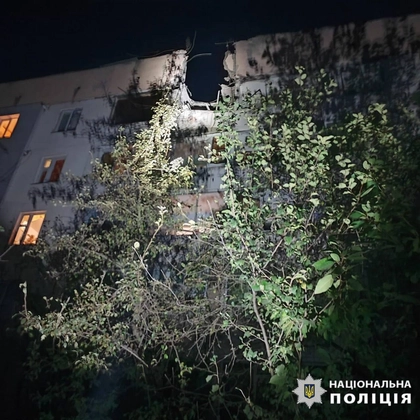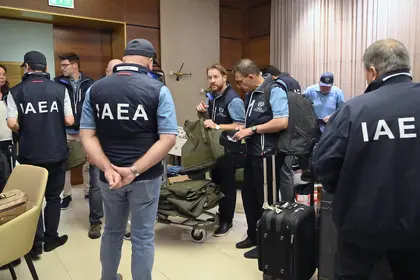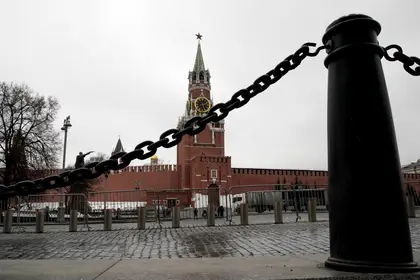The International Atomic Energy Agency (IAEA), the UN’s nuclear watchdog, claims that its inspectors have frequently travelled to two sites in Ukraine at the center of Russian allegations that Kyiv is constructing a so-called dirty bomb.
Following a request from the Ukrainian government, Director General Rafael Grossi announced that inspectors would return soon to conduct “verification activities” at the two unnamed locations.
JOIN US ON TELEGRAM
Follow our coverage of the war on the @Kyivpost_official.
Russia’s claims, which NATO denies, are not supported by any evidence.
President Volodymyr Zelensky issued a warning that Russia might be planning such an attack. During his nightly address on Oct. 24, 2022, Zelensky stated “if Russia calls and says that Ukraine is allegedly preparing something, it means one thing: Russia has already prepared all this.”
A dirty bomb employs a conventional explosive that when detonated disperses radioactive material, such as uranium, throughout the air. They are less expensive and more manoeuvrable because they don’t require highly refined radioactive material, like a nuclear bomb does.
In September, the IAEA “inspected one of these locations, and all our findings were consistent with Ukraine’s safeguards declarations,” according to Mr. Grossi.
“No undeclared nuclear activities or material were found there,” he stated.
The Eastern Mineral Enrichment Plant in the center of the Dnipropetrovsk region and the Institute for Nuclear Research in Kiev were cited by Russia’s state-run news agency, RIA Novosti, as the two key locations for the purported Ukrainian operation.

Kyiv Hit by Massive Drone Attack as Russian Strikes Target Multiple Ukrainian Cities
Moscow is expected to reiterate the accusation during a meeting of the UN Security Council on Oct. 25. Russian representative to the council, Vassily Nebenzia, wrote to UN Secretary-General Antonio Guterres saying that his nation would “regard the use of the dirty bomb by the Kyiv regime as an act of nuclear terrorism.”
“Our Ministry of Defense has also received information that this provocation can be carried out with the support of Western countries,” Mr. Nebenzia’s letter read.
Allegations made by Russian Defense Minister Sergei Shoigu have been denied by Ukraine and its allies in the West. The foreign ministers of the U.S., U.K., and France denounced the claims as “transparently false” in a joint statement on Monday, Oct. 24. They added the “world would see through any attempt to use this allegation as a pretext for escalation.”
Western intelligence officials have emphased that there is no evidence that Russia is planning to use dirty bombs or other nuclear devices.
Russian claims of a dirty bomb arose as Ukrainian Armed Forces continued to make progress in the southern region of Kherson. Since August, the UAF has been advancing slowly, retaking about 90 villages in the area, home to 12,000 people, in the direction of Kherson City, the regional capital.
Russian officials have recently left the city and urged residents to cross the Dnieper River into Russian-controlled territory.
However, Kyrylo Budanov, head of military intelligence for Ukraine, warned state media that Russian troops in the area were preparing to defend the city rather than flee.
“They are creating the illusion that all is lost. Yet, at the same time, they are moving new military units in and preparing to defend the streets of Kherson,” Mr Budanov argued.
There are concerns that Moscow may compel local, civilian men to join military formations after regional authorities stated that some men who chose to stay behind in the city would have the option of joining local militias to defend it. According to the Geneva Convention, these actions would be considered war crimes.
Kherson is the only significant Ukrainian city that Russian forces were able to seize during their invasion.
You can also highlight the text and press Ctrl + Enter






